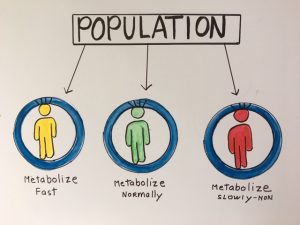READ STUDY…
Adjuvants – Systemic_immunotoxicity_reactions_induced by adjuvanted vaccines
6.4. Modification of drug hepatic metabolism (cyp450)
Reports of patients developing phenytoin, warfarin or theophylline
toxicity, following acute infections [118,119] and anti-influenza vaccination,
have been published [119–128]. In one study, toxic elevations
in the levels of the concurrent medicines were reported to occur up to
28 days after vaccination [124]. Other vaccines such as Bacillus Calmette
Guerin (BCG), and immunostimulators such as interferons and various
cytokines are able to produce the same effect [129–131]. The effect of
immunostimulation on drug metabolismwas demonstrated several decades
ago in laboratory animals, using several vaccines and adjuvants,
with the demonstration that cytochrome P450 hepatic enzyme inhibition
as a consequence immunostimulation is involved, leading to
reduced clearance of the concurrently administered medicines
[132–135]. Years later, Renton reported that the release of cytokines,
such as IL-1, IL-2, IL-6, TNF, TGF-β and IFNs, is involved in modulating
the expression of several P450 isoforms [130]. Reversible changes in
the pharmacokinetic parameters of theophylline, and decreased expression
of CYP1A, 2B1/2, and 3A subfamily, have also been reported in rats
after intravenous injection of lipopolysaccharide (endotoxin) derived
from Klebsiella pneumoniae [136] and a similar effect was observed
after application of FCA to mice (used as a positive control), for comparison
with a non-toxic intranasal adjuvant called AFCo1 [97].
On the other hand, Prandota have shown the rapid decrease in the
total CYP450 liver content of FCA-treated rats and the selective downregulation
of specific CYP isoforms through a direct reduction in
mRNA levels (CYP2B, CYP2CI1, CYP3A1, and CYP2E1), protein content
(CYP2B, CYP2C11, and CYP2E1) and catalytic activity (CYP2C6,
CYP2C11, and CYP2E1). Thus, Prandota has highlighted that polymorphisms
of drug-metabolizing enzymes and cytokines may contribute
markedly to drug-induced hepatotoxicity and drug pharmacokinetic
disturbances, affecting genetically predisposed subjects [137].
